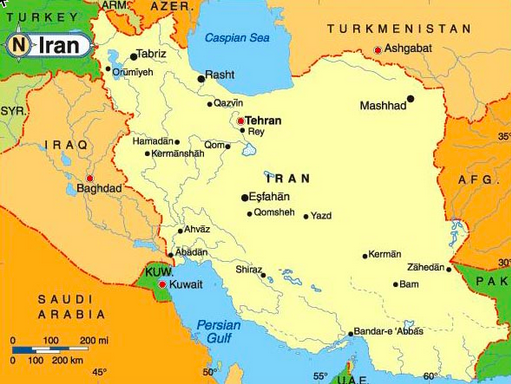President Trump’s reasons for withdrawing the United States from the Iran nuclear deal caught our attention. The stakes are huge, so Trump’s rationale merits scrutiny.
The United States was one of seven countries in the Joint Comprehensive Plan of Action (JCPOA), an agreement struck by President Barack Obama’s administration in 2015. Aside from Iran, the other countries are China, France, Germany, Russia and Britain. It remains to be seen whether the Iran deal will hold together without the United States.
We reviewed six of Trump’s claims from his May 8 speech announcing the decision to withdraw from the deal. As is our custom with roundups of multiple statements, we will not be offering a Pinocchio rating. But we invite readers to weigh in with comments.
“In fact, the deal allowed Iran to continue enriching uranium and — over time — reach the brink of a nuclear breakout. …
“The agreement was so poorly negotiated that even if Iran fully complies, the regime can still be on the verge of a nuclear breakout in just a short period of time. The deal’s sunset provisions are totally unacceptable. …
“If we do nothing, we know exactly what will happen. In just a short period of time, the world’s leading state sponsor of terror will be on the cusp of acquiring the world’s most dangerous weapons.”
Notice how Trump uses flexible wording such as “on the verge of a nuclear breakout in just a short period of time.” This is refreshing and more accurate than his Four Pinocchio claim from April 30: “In seven years, that deal will have expired, and Iran is free to go ahead and create nuclear weapons.”
Europeans Scramble To Save Iran Nuclear Deal But Face New Concerns Over U.S. Sanctions
Behind Trump’s Termination of Iran Deal Is a Risky Bet
Israel is a more complicated case.
Prime Minister Benjamin Netanyahu has pressed Mr. Trump to abandon an arrangement that the Israeli leader has always detested. But Mr. Netanyahu’s own military and intelligence advisers say Israel is far safer with an Iran whose pathway to a bomb is blocked, rather than one that is once again pursuing the ultimate weapon.
“The individuals who shoulder responsibility for Israel’s survival and security have been crystal clear,” Graham Allison, a Harvard professor who has spent his career examining cases of nuclear proliferation.
“This will most likely lead to an outcome that is much worse not only for the U.S., but for Israel,’’ Mr. Allison said, because the current agreement rolled Iran’s nuclear program back a decade “and imposed on Iran the most intrusive inspection regime ever negotiated.”
But Mr. Netanyahu holds Israel’s bullhorn, and he used it last week to persuade Mr. Trump to pull the plug on the Iran deal. By releasing Iranian documents, stolen from Tehran in January, Mr. Netanyahu proved what Western intelligence agencies long knew: A decade ago or even longer, the Iranians were working hard to design a nuclear warhead.




